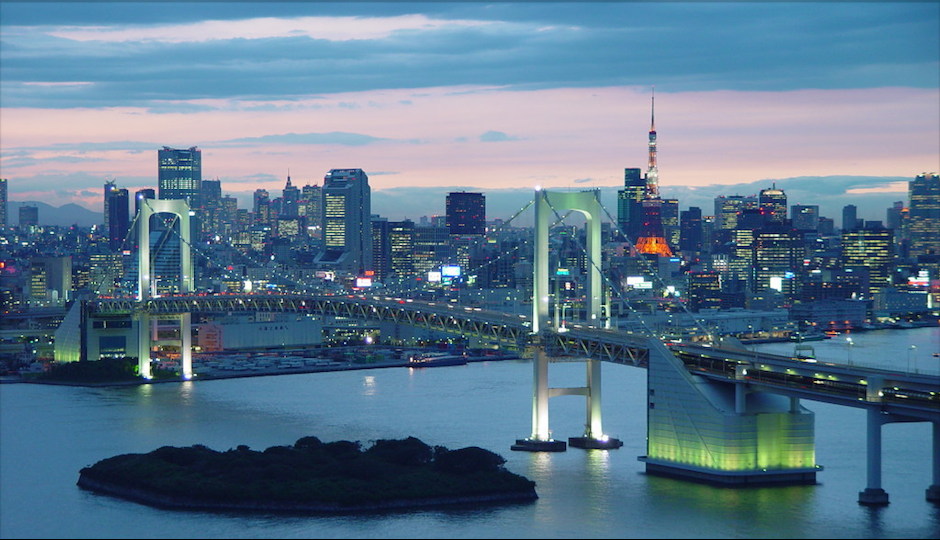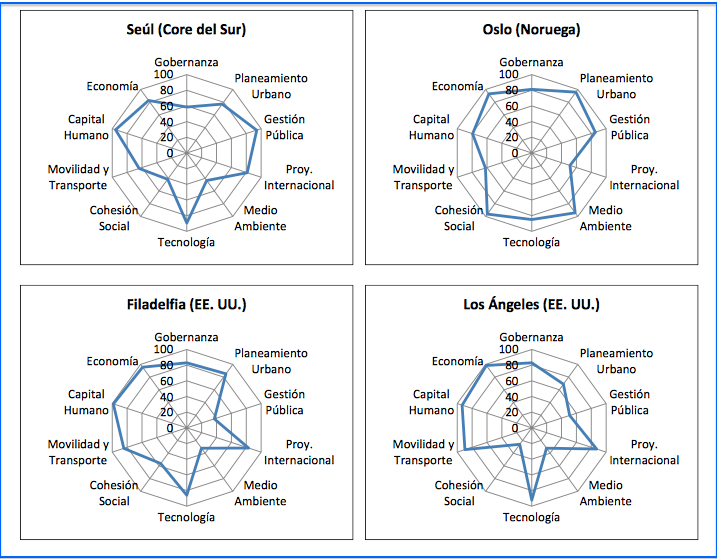Is Philly One of the “Smartest” Cities in the World?

It’s sort of like the Ben Franklin Bridge, except in the world’s smartest city, Tokyo. Photo: Wikimedia Commons.
Spain’s IESE Business School at the University of Navarra, which is not a dependent clause we’ve typed on this blog before, has released its Cities in Motion Index — a report I can’t imagine most Philadelphians would be interested in unless Philadelphia was mentioned in it.
As luck should have it, Philadelphia was mentioned in it! And superficially, the results are good, at least for headline writers: The city seems to one of the world’s 20 “smartest,” as IESE calls them.
But let’s clarify. Not because we don’t want the compliment, but because it’s useful to see what our strengths and weaknesses are.
First of all, the pool from which the researchers drew was not ALL THE CITIES IN THE WORLD. Because that would make them very, very sad. There were 135 cities included in the survey, with a selection from each continent. As an example, the cities from North America were:
Montreal
Ottawa – Galineau
Toronto
Vancouver
Baltimore
Chicago
Dallas
Houston
Los Angeles
Minneapolis-Saint Paul
New York
Philadelphia
To rank the 135 cities from 55 countries, the group gathered by IESE looked at 50 indicators along 10 dimensions. The larger categories give a sense of what’s meant by “smart”:
1. Governance
2. Public administration
3. Urban planning
4. Technology
5. Environment
6. Human capital
7. Mobility and transportation
8. International reputation
9. Economy
10. Social cohesion
The 50 factors are rather specific, and though there are a lot (50), it’s worth listing them (in a compressed version):
Time Required to Start a Business
Labour Productivity
Total Early Stage Entrepreneurial Activity
International flows of mobile students at the tertiary level
Population by Educational Attainment [Higher]
Population by Educational Attainment [Secondary]
Population by Educational Attainment [Primary]
Consumer Expenditure on Leisure and Recreation per capita
Strength of Legal Rights Index
Corruption Perceptions Index
Fixed broadband Internet Subscribers
Innovation Cities Index
Road Traffic Deaths per capita, by car
Logistics Performance Index: Overall
Logistics Performance Index: Trade
CO2 emissions (kt)
Methane emissions
PM10 24 Hour Meanmicrograms per cubic meter
Improved water source, urban (% of urban population with access)
Environmental Performance Index
Unemployment Rate
Gini Index
Consumer Expenditure on Housing per capita
Death    
Airline Passengers
International Tourist Arrivals
Numbers of Meetings
Improved sanitation facilities (% of population with access)
Occupants per Household
Total reserves
Total reserves per capita
Total tax rate (% of commercial profits)
Consumer Expenditure on Hotels and Catering per capita
Annual Disposable Income
Average Household Annual Income by Deciles
Employment Rate
Consumer Expenditure on Education per capita
Consumer Expenditure on Health Goods and Medical Services per capita
Based on all of that, Philadelphia’s high ranking makes a little more sense. Naturally, we’re not going to best Northern Europe or Tokyo in anything, but you can see where we’d excel beyond cities in South America, Africa, China, and the Dominican Republic in terms of a number of these indicators. Say what you will about the U.S.: within a global context, we have excellent access to quality water. Also, I sort of think that Philadelphia must score low on the “Numbers of Meetings” indicator. We just don’t put up with that.

Philadelphia, as visually compared to three other highly ranked cities in the ICIM report.
There’s one thing the report says that I feel is so worth mentioning — especially during a week with so much news from the tourism office (details to come) — that I translated it myself:
Cities don’t always deserve the reputations they have. A comparative study of the city’s ranking on the ICIM and the public perception of that city [on the IR, a different index] suggests that some cities must find a way to communicate their strengths more effectively. On the other hand, there are some cities that enjoy a better reputation than their ranking on the ICM would suggest (such as Florence, which is ranked 57th on the ICIM but 6th on the IR).
God only knows where Philly ranks on the IR, but if the ICIM is anything to go by, we have a number of strengths to communicate to the world — in particular, governance, urban planning, human capital, and economy. Our greatest weaknesses? Public administration and social cohesion.
• Which Are the World’s “Smartest” Cities? [IESE Insight]
• Full report (in Spanish): here


